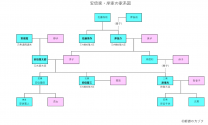Due to cooperation with Kazakhstan, the EU expects a reduction in supplies from China by up to 50%. “Dependence of 90% on one source is dependence. It is convenient for us, as consumers, when there is a choice of three or five suppliers. We really hope that Kazakhstan, and Central Asia as a whole, can be one of those regions that will be an alternative supplier. We expect a decrease from 90% to 50% from one source and 15-20% from other sources,” said Jankauskas.
According to the Kazakh Minister of Industry and Infrastructure Development Marat Karabayev, out of 30 rare earth materials crucial for the EU economy, such as titanium, beryllium, tantalum, and niobium, Kazakh companies currently produce 16. Kazakhstan has known deposits of nine additional ones that, too, can be produced with relevant investments in development and production. As for the remaining five, he said, “we are ready to explore them.”
Karabayev said that approximately 150 Kazakh companies are going to attend the upcoming Raw Materials Week, which will take place on Nov. 13-17 in Brussels, Belgium. Kazakhstan will hold a major event on Nov. 16 to promote Kazakh subsoil companies.


